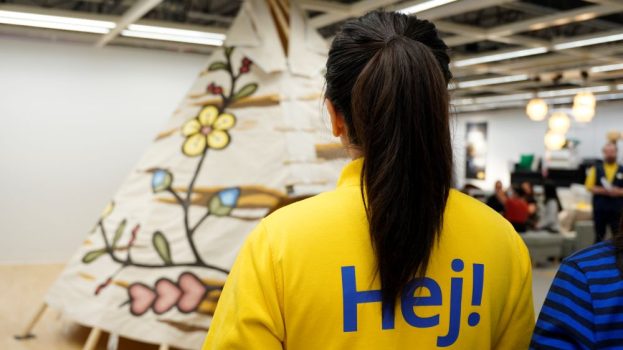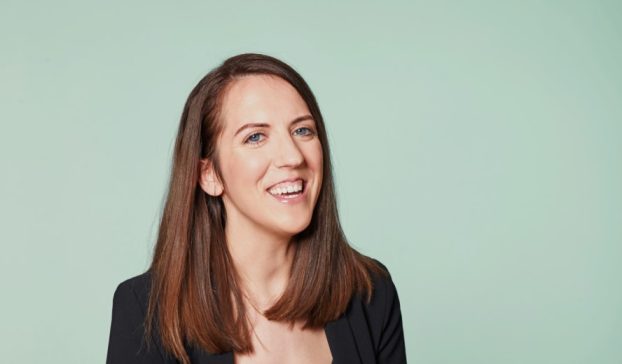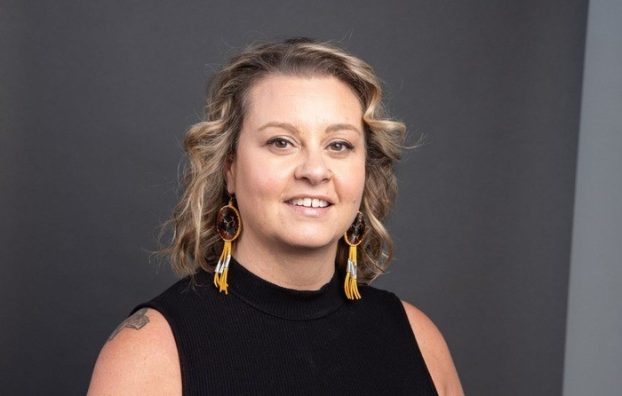This is the second in a series of profiles on Canada’s commercial production sector – and more specifically, on BIPOC-led companies and organizations that are working to improve diversity and representation in front of and behind the camera. You can read the first instalment on industry non-profit POV Film here.
When Taj Critchlow and Director X co-founded production house Fela in 2020, they did so amid a global pandemic and at the height of the George Floyd protests. In that context, and as Black creatives themselves, Critchlow – who is also the company’s managing director – says the pair felt it important to be the “agent of change” they wanted.
“We wanted to truly be a Black-owned production company that performs on a premium level, to set an example to other BIPOC creatives who feel that they don’t have a place in advertising. This has always been about being a leader in industry,” Critchlow tells strategy. “Director X and I also felt it important that we create something that is both a true example of excellence in production and driven by people of colour, which gives a platform to different artists and directors to use as a launching pad.”
Critchlow has worked in the sector for more than two decades, both in production and managerial roles for a number of companies including Popp Rok, Creative Soul and Maxamus Entertainment. While his career started primarily managing directors of music videos, he also built up a strong portfolio of commercial work.
Even with that background, however, he says that prior to the peak of the Black Lives Matter movement, he had trouble getting to the table with a lot of agencies. Though things shifted to some extent when BIPOC issues were brought to the forefront of the public consciousness amid widespread protest, but Critchlow says he’s skeptical of the degree of meaningful change that has unfolded since.
“This was the first time in my history that I was having conversations with a bunch of agencies that wouldn’t breathe in my direction for a bunch of reasons, and now we were seeing a bunch of boards [from them]. In Canada, it’s a very cliquey industry. People work with who they know,” he explains. “So it’s great that we are finally seeing more boards, getting more attention and having more conversations, but there is still more work to be done. Outside of the work opportunities, I feel the change truly needs to happen from within. Because it’s not just the talent that needs to be diversified and inclusive, it’s the c-suites as well.”
For its part, Fela has been confronted with two distinct challenges since its founding. First, Critchlow says, is the newness of the company, alluding once more to the cliquey nature of the industry.
“I’ve been in this business for 20 years and even though I’ve made a lot of headway here, what I still face on this side and the U.S. side is we’re a new company,” he elaborates. “A lot of times, people want to go to companies that have a track record and history. But the way we work around that is once we get in the doors, it’s about putting a flag in the ground, doing the job and performing above and beyond. That’s how we win, one by one. It’s like campaigning, we’re politicians. We’re literally going door to door, vote by vote, region to region. It’s the same with agencies.”
Fela has also had to dismantle misperceptions about what it does as a company. With a background in music videos – among others, the company often works with hip hop artist Drake – the shop has sometimes been overlooked for commercial work due to concerns that they might not be able to tell a complete story in the shorter run time. But Critchlow says that Fela’s background is actually an advantage, pointing to creative minds like David Fincher, Antoine Fuqua and Spike Jonze as directors who broke out in music videos and went on not only to helm very lucrative film projects, but also multi-million dollar commercial spots.
“There’s a stigma that we only do music videos. But if agencies took the time and asked, we’d send them a deck that shows the work we’ve done and awards we’ve won,” he explains, pointing in particular to work for major brands such as Lego and Adidas. “I think that’d break down a lot of the stigma we experience as a brand.”
He also notes that, while Fela got its start in music videos, it actually does far more commercial work these days, with a 90/10 balance skewing toward commercials. The production house also works on branded content and has branched out into longer-form storytelling, including film – its first feature film, “Underplayed,” was shortlisted for a Cannes Lion.
Ultimately, Critchlow says he is proud of the growth Fela has experienced since its launch. “I wanted to create a shop from Toronto that could compete with the biggest and baddest production companies in the world,” he says, and he feels he is in the process of doing that – pointing to the company’s relatively new foothold in Los Angeles, as well as plans to expand into the United Kingdom.
“That growth, as a company, is something I love seeing. We’ve evolved into a more developed company and are evolving further,” Critchlow says. “If you look at companies like Anonymous Content, we’re taking a page from their playbook. But we pride ourselves on the fact that we’re breaking talent from our city domestically, and making them household names internationally.”
























